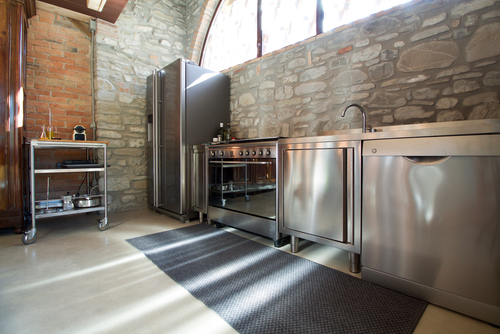The Benefits of Modular Refrigeration Systems

The refrigeration system is an essential component of any commercial kitchen, providing a reliable way to store and preserve perishable foods. Traditional refrigeration systems typically consist of large, centralized units that require considerable space and are challenging to install and maintain. However, modular refrigeration systems offer a more flexible and efficient alternative that is gaining popularity in various foodservice establishments. In this blog, we will explore the benefits of modular refrigeration systems and why they are a practical choice for commercial kitchens.
What are Modular Refrigeration Systems?
Modular refrigeration systems are composed of individual, standalone refrigeration units that can be combined to create a customized refrigeration solution for a commercial kitchen. These units typically include walk-in coolers, freezers, reach-in refrigerators, and under-counter refrigerators, each serving a specific purpose in storing and cooling food items. Modular refrigeration systems offer a more flexible and scalable approach to refrigeration, allowing foodservice operators to adapt their refrigeration capacity to meet changing storage needs.
Benefits of Modular Refrigeration Systems
1. Flexibility: One of the key advantages of modular refrigeration systems is their flexibility in design and installation. Instead of relying on a single, centralized refrigeration unit, foodservice operators can mix and match individual modules to create a custom refrigeration layout that suits their specific kitchen layout and storage requirements. This flexibility allows for more efficient use of space and better organization of food items based on temperature and accessibility needs.
2. Scalability: Modular refrigeration systems are scalable, meaning that additional units can be easily added or removed as needed to accommodate changes in kitchen operations or storage capacity. Whether expanding a commercial kitchen, reconfiguring storage space, or updating refrigeration equipment, modular systems offer a convenient and cost-effective solution for adapting to evolving business needs without the expense and disruption of replacing an entire refrigeration system.
3. Energy Efficiency: Modular refrigeration systems are designed to be energy-efficient, with individual units operating independently to cool designated areas or food items. This targeted cooling approach helps reduce energy consumption compared to traditional centralized systems, which must cool the entire storage space regardless of the actual cooling requirements. By optimizing energy usage and controlling temperature zones more effectively, modular systems can lower operating costs and contribute to a more sustainable kitchen environment.
4. Redundancy: Another advantage of modular refrigeration systems is the built-in redundancy they offer. Instead of relying on a single unit to cool the entire storage space, modular systems distribute cooling capacity across multiple units. This redundancy minimizes the risk of a complete system failure, as one unit can compensate for a malfunctioning unit while maintenance or repairs are carried out. Redundancy also ensures that food items remain properly stored and preserved, reducing the risk of spoilage and potential food safety hazards.
5. Ease of Maintenance: Modular refrigeration systems are designed for easy maintenance and serviceability, with individual units that can be accessed and serviced independently. This modular approach simplifies routine maintenance tasks, such as cleaning coils, replacing filters, or troubleshooting issues, as technicians can work on specific units without disrupting the entire refrigeration system. Additionally, if a unit requires repairs or replacement, it can be easily disconnected and swapped out with minimal downtime, keeping kitchen operations running smoothly.
6. Temperature Control and Monitoring: Modular refrigeration systems often come equipped with advanced temperature control and monitoring features that allow foodservice operators to maintain precise temperature settings for different storage areas. These systems may include digital thermostats, temperature alarms, and remote monitoring capabilities that provide real-time data on temperature levels, defrost cycles, and energy usage. By monitoring and controlling temperature more effectively, operators can ensure food safety, prevent spoilage, and optimize refrigeration performance.
Summary
Modular refrigeration systems offer several benefits that make them an attractive option for commercial kitchens seeking flexibility, efficiency, and reliability in their refrigeration operations. From customizable design and scalability to energy efficiency, redundancy, ease of maintenance, and advanced temperature control, modular systems provide a versatile and practical solution for storing and preserving perishable foods in foodservice establishments. Whether upgrading an existing kitchen or designing a new space, consider the advantages of modular refrigeration systems for a more efficient and effective refrigeration solution that meets the evolving needs of your commercial kitchen.
Need Commercial Refrigeration, Heating and Cooling in Eugene, OR?
Call American Refrigeration for your commercial heating, ventilation & cooling needs. Founded in 1995, American Refrigeration has been proudly serving the Eugene & Portland areas with honesty & integrity for over 19 years. We specialize in commercial HVAC, air conditioning & heating repair, including medical laboratories and winery chillers. Emergency Repair is available 24/7 and we honor manufacturer rebates & warranties. Contact us today!
